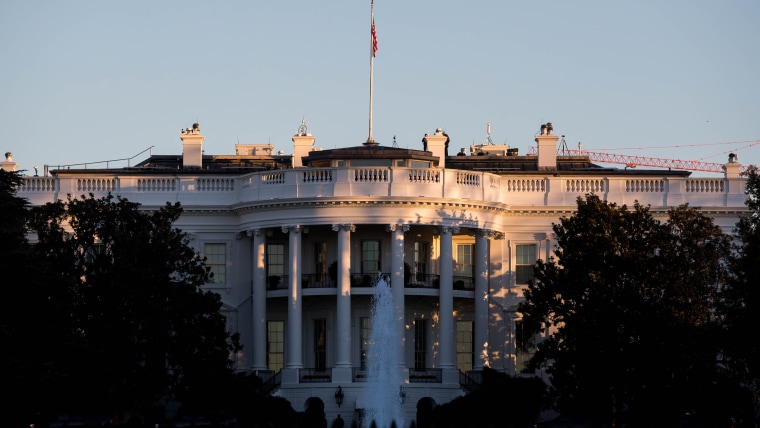One of the key elements of the controversy surrounding former White House Staff Secretary Rob Porter is his security clearance. For reasons that remain unclear, Porter handled highly sensitive, classified materials as part of his day-to-day duties, despite the fact that he didn't -- and by some accounts, couldn't get -- a permanent security clearance after an FBI review on his background.
There's no great mystery as to why: Porter faced accusations of domestic abuse, including one of his ex-wives telling officials that he was vulnerable to blackmail.
What's now coming into focus, however, is the scope of Trump World's problem in this area. NBC News had this stunning report last night:
More than 130 political appointees working in the Executive Office of the President did not have permanent security clearances as of November 2017, including the president's daughter, son-in-law and his top legal counsel, according to internal White House documents obtained by NBC News.Of those appointees working with interim clearances, 47 of them are in positions that report directly to President Donald Trump. About a quarter of all political appointees in the executive office are working with some form of interim security clearance.
Those titles are of particular importance here. We're not talking about low-level aides who have a peripheral role in Trump World. This is about dozens of officials who report directly to the president -- including Jared Kushner and White House Counsel Don McGahn, for goodness sakes -- who didn't have a permanent security clearance.
Heck, as of November, nearly half the staffers on the National Security Council were working with nothing more than an interim clearance.
Just this week, Director of National Intelligence Dan Coats delivered Senate testimony in which he said those without a permanent security clearance should have limited access to classified materials.
Evidently, Donald Trump's White House operated from a different perspective on this.
Neal Katyal, the former acting Solicitor General, described this as "unforgivable," adding that he's never seen "anything like this" during his tenure working on sensitive national security matters in two different administrations.
I suppose the lingering question on my mind is this: didn't we recently have a presidential election in which Republicans spent every day telling voters that careless handling of classified materials was the single most important issue facing the nation? Should we now assume that some of those concerns were less than sincere?
